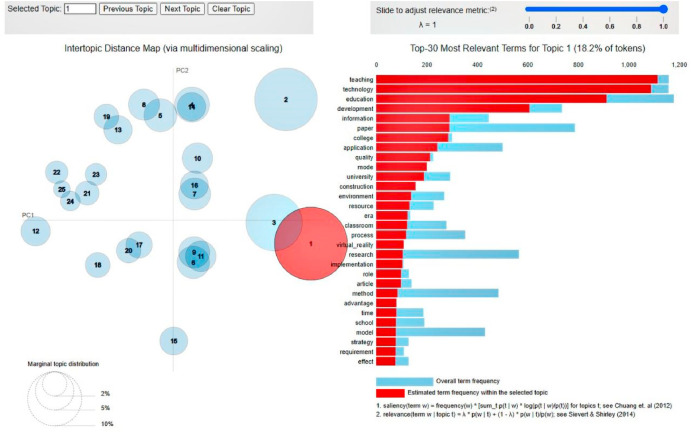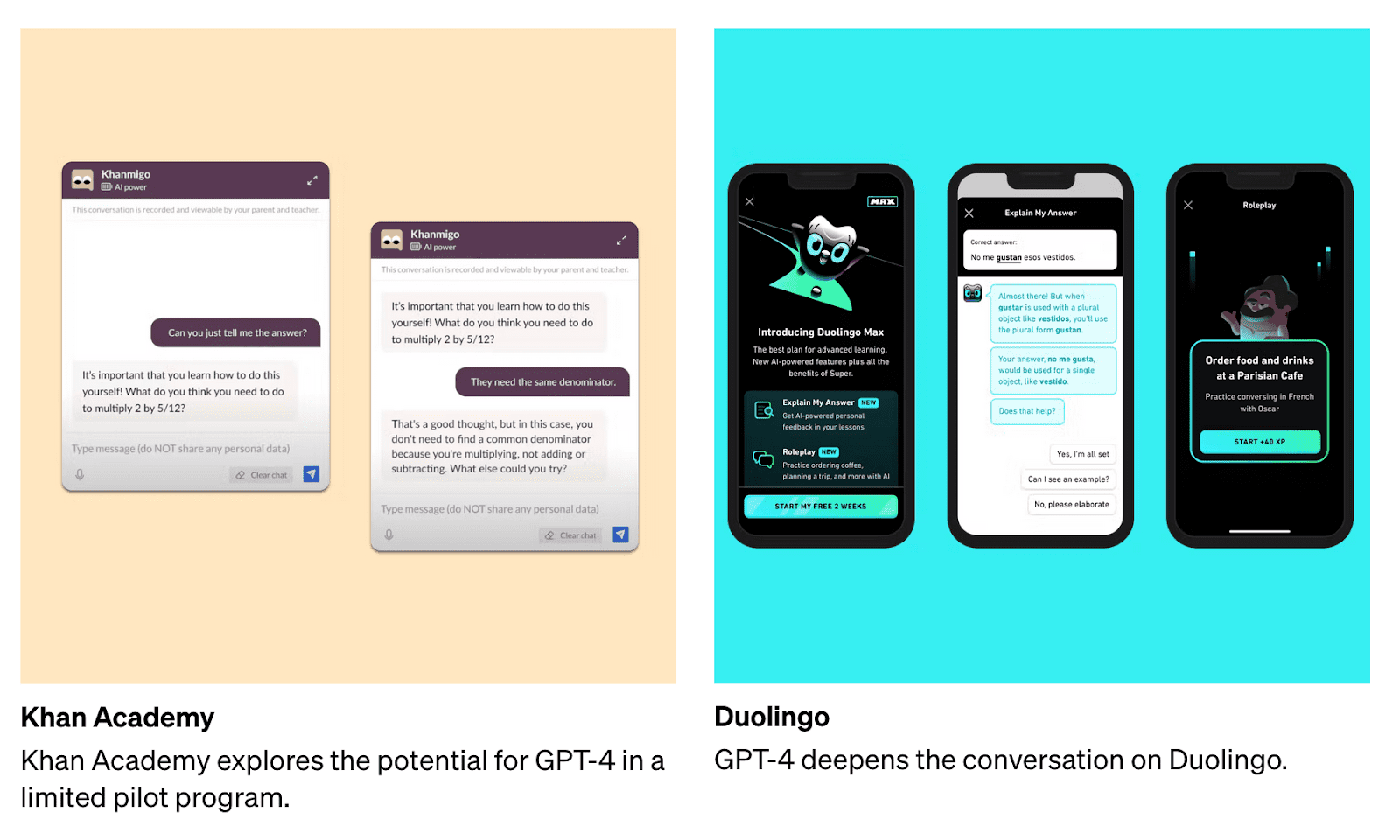The Personalized Learning Revolution
The education sector is undergoing a profound transformation as AI-powered personalized learning reshapes how students engage with educational content. In 2025, 92% of educational institutions have implemented some form of AI-driven personalization, up from just 25% in 2020 (HolonIQ, 2025). This revolution is powered by sophisticated machine learning algorithms that analyze individual learning patterns, preferences, and performance metrics to create customized learning experiences. The results are remarkable: schools using AI personalization report a 35% improvement in learning outcomes and a 40% increase in student engagement (McKinsey Education, 2025). This transformation is making education more accessible, effective, and engaging for learners of all ages and abilities.

Impact of AI on personalized learning outcomesSource: Science Direct: Personalized Learning Education Technology Market Report 2022
AI in education market to reach $32.7B by 2030 (Grand View Research, 2025)
92% of institutions use AI for personalized learning (HolonIQ, 2025)
35% improvement in learning outcomes with AI personalization (McKinsey, 2025)
AI reduces learning time by 50% while improving retention (Deloitte, 2025)
Adaptive Learning Platforms
The next generation of adaptive learning platforms leverages AI to create truly personalized educational experiences. These systems analyze over 100 data points per student, including engagement patterns, assessment performance, and even emotional state through facial recognition and biometric data. Leading platforms like DreamBox and Knewton (now part of Wiley) use sophisticated algorithms to adjust content difficulty in real-time, ensuring optimal challenge levels that maximize learning efficiency. Research shows that students using AI-adaptive platforms progress through material 30-50% faster than traditional methods while demonstrating 25% higher retention rates (Wiley Education, 2025). These platforms are particularly effective in STEM education, where they've helped reduce achievement gaps by 45% in underserved communities.

AI-powered adaptive learning platform interfaceSource: Disco: Top Rated AI Powered Learning Platform
Adaptive learning market to reach $12.1B by 2027 (MarketsandMarkets, 2025)
30-50% faster learning with AI-adaptive platforms (Wiley, 2025)
45% reduction in STEM achievement gaps (National Science Foundation, 2025)
87% of students report higher engagement with adaptive learning (EdTechX, 2025)
AI Tutors and Learning Assistants
AI-powered tutors are revolutionizing one-on-one learning by providing personalized instruction 24/7. These intelligent systems use natural language processing and machine learning to understand student queries, provide detailed explanations, and offer targeted practice problems. Khan Academy's AI tutor, for instance, can now explain complex mathematical concepts in multiple ways, detect misconceptions through pattern recognition, and provide real-time feedback with 95% accuracy (Khan Academy, 2025). In language learning, platforms like Duolingo use AI to create personalized lesson plans that adapt to each learner's pace and learning style, resulting in 3x faster language acquisition compared to traditional methods (Duolingo, 2025). These AI tutors are particularly valuable in addressing the global teacher shortage, providing quality education to students in remote and underserved areas.

Student interacting with an AI-powered virtual tutorSource: Class Central: ChatGPT on Duolingo, Khan Academy
AI tutoring market to reach $13.8B by 2028 (Global Market Insights, 2025)
95% accuracy in AI tutor explanations (Khan Academy, 2025)
3x faster language learning with AI (Duolingo, 2025)
AI tutors available 24/7 at 10% of traditional tutoring costs (Forbes, 2025)
Learning Analytics and Predictive Modeling
Advanced learning analytics powered by AI are enabling educators to predict student performance and intervene before learning gaps become problematic. These systems analyze thousands of data points, including assignment completion rates, quiz scores, and even participation patterns, to identify at-risk students with 92% accuracy (Harvard Education Review, 2025). Predictive models can forecast student performance 6-8 weeks in advance, allowing for timely interventions. For example, Georgia State University's AI-powered advizing system has helped increase graduation rates by 23% while reducing equity gaps by 40% (GSU, 2025). These analytics also help optimize curriculum design, identifying which teaching methods and content formats are most effective for different learning styles.

AI-powered learning analytics dashboard for educatorsSource: Open Education Analytics: AI in Higher Education 2025
92% accuracy in predicting at-risk students (Harvard Education Review, 2025)
23% increase in graduation rates with AI advizing (GSU, 2025)
40% reduction in equity gaps (GSU, 2025)
85% of universities use predictive analytics (EDUCAUSE, 2025)
The Future of AI in Education
As we look toward 2026 and beyond, AI in education is poized to become even more sophisticated and impactful. Emerging technologies like emotion-sensing AI will enable systems to detect student frustration or disengagement and adjust teaching strategies accordingly. The integration of augmented and virtual reality will create immersive, personalized learning experiences that make abstract concepts tangible. Blockchain technology will provide secure, portable learning credentials that follow students throughout their educational journey. The most successful educational institutions will be those that view AI not as a replacement for teachers, but as a powerful tool that enhances human instruction, making education more personalized, accessible, and effective for every learner.

Future of AI in education with VR and emotion-sensing technologySource: MDPI: Future of AI in Education 2025
AI in education to reach $47B by 2027 (Global Market Insights, 2025)
VR/AR in education market to reach $32B by 2028 (PwC, 2025)
70% of K-12 schools will use AI by 2026 (Gartner, 2025)
AI could add $1.3T to global education by 2030 (McKinsey, 2025)
References
HolonIQ. (2025). Global Education Technology Market Report 2025.
McKinsey & Company. (2025). Education Technology and the Future of Learning.
Wiley Education. (2025). The State of Adaptive Learning 2025.
Khan Academy. (2025). The Impact of AI on Education: 2025 Report.
Harvard Education Review. (2025). AI in Higher Education: Current Trends and Future Directions.
Georgia State University. (2025). AI-Powered Student Success Initiatives.
Duolingo. (2025). Language Learning in the Age of AI.
Gartner. (2025). Hype Cycle for Education Technology.
PwC. (2025). VR/AR in Education: Market Analysis and Forecast.
National Science Foundation. (2025). Closing the STEM Achievement Gap with AI.
Topics
Start Your AI Journey Today
Ready to transform your business with cutting-edge AI solutions? Contact our team of experts to discuss your project.
Schedule a Consultation